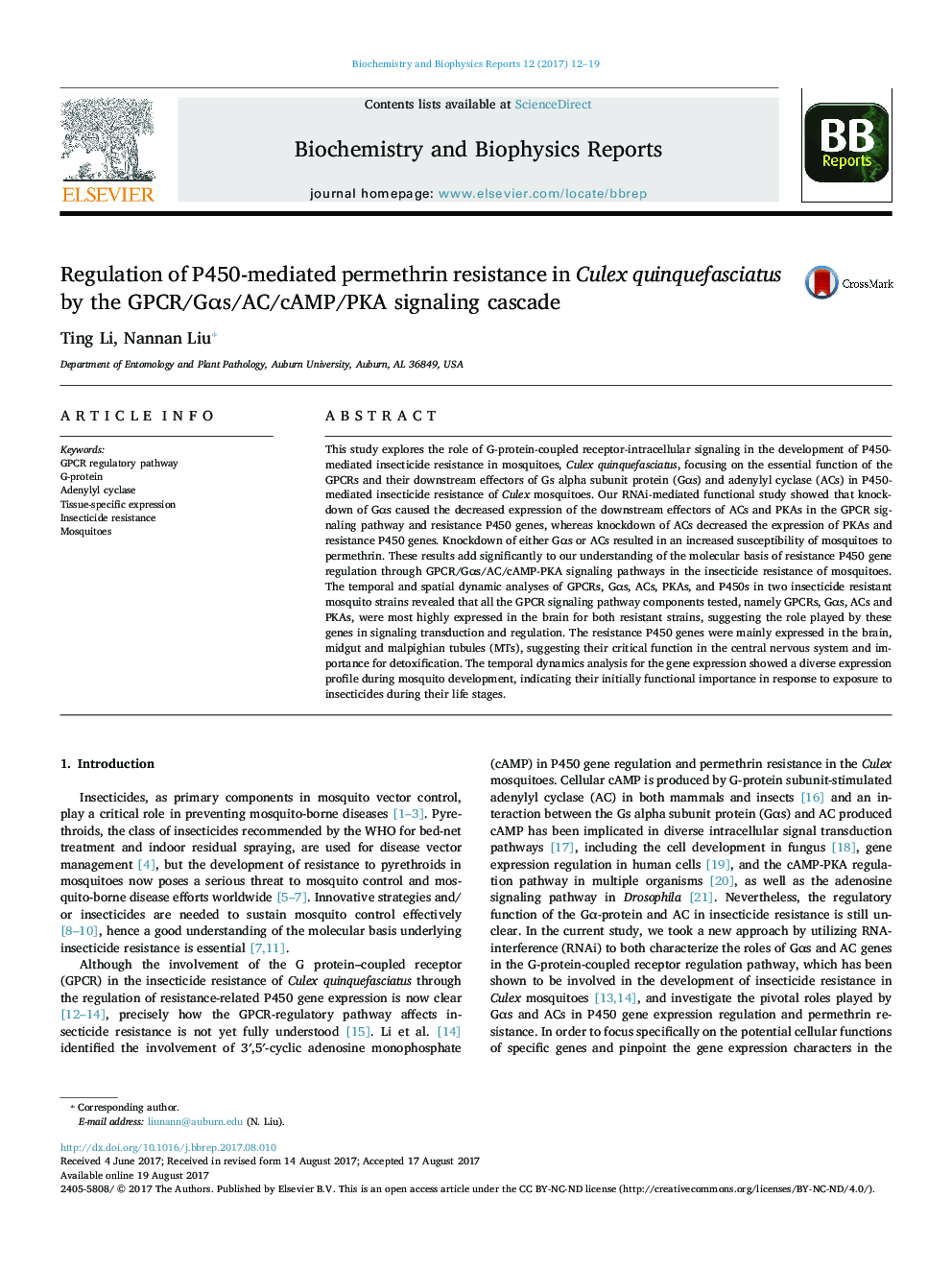| کد مقاله | کد نشریه | سال انتشار | مقاله انگلیسی | نسخه تمام متن |
|---|---|---|---|---|
| 5506960 | 1536896 | 2017 | 8 صفحه PDF | دانلود رایگان |

- GPCR, Gs alpha subunit protein (Gαs), adenylyl cyclase (ACs), and protein kinase A (PKAs) regulates resistance P450 gene expression and the development of insecticide resistance in mosquitoes, Culex quinquefasciatus.
- GPCR, Gαs, ACs, and PKAs, are highly expressed in the brain of mosquitoes, corresponding their role in signaling transduction, and regulation.
- GPCR, Gαs, ACs, PKAs, and P450s are expressed in the different life stages of mosquitoes, revealing their functional importance in response to exposure to insecticides during mosquito life stages.
This study explores the role of G-protein-coupled receptor-intracellular signaling in the development of P450-mediated insecticide resistance in mosquitoes, Culex quinquefasciatus, focusing on the essential function of the GPCRs and their downstream effectors of Gs alpha subunit protein (Gαs) and adenylyl cyclase (ACs) in P450-mediated insecticide resistance of Culex mosquitoes. Our RNAi-mediated functional study showed that knockdown of Gαs caused the decreased expression of the downstream effectors of ACs and PKAs in the GPCR signaling pathway and resistance P450 genes, whereas knockdown of ACs decreased the expression of PKAs and resistance P450 genes. Knockdown of either Gαs or ACs resulted in an increased susceptibility of mosquitoes to permethrin. These results add significantly to our understanding of the molecular basis of resistance P450 gene regulation through GPCR/Gαs/AC/cAMP-PKA signaling pathways in the insecticide resistance of mosquitoes. The temporal and spatial dynamic analyses of GPCRs, Gαs, ACs, PKAs, and P450s in two insecticide resistant mosquito strains revealed that all the GPCR signaling pathway components tested, namely GPCRs, Gαs, ACs and PKAs, were most highly expressed in the brain for both resistant strains, suggesting the role played by these genes in signaling transduction and regulation. The resistance P450 genes were mainly expressed in the brain, midgut and malpighian tubules (MTs), suggesting their critical function in the central nervous system and importance for detoxification. The temporal dynamics analysis for the gene expression showed a diverse expression profile during mosquito development, indicating their initially functional importance in response to exposure to insecticides during their life stages.
218
Journal: Biochemistry and Biophysics Reports - Volume 12, December 2017, Pages 12-19